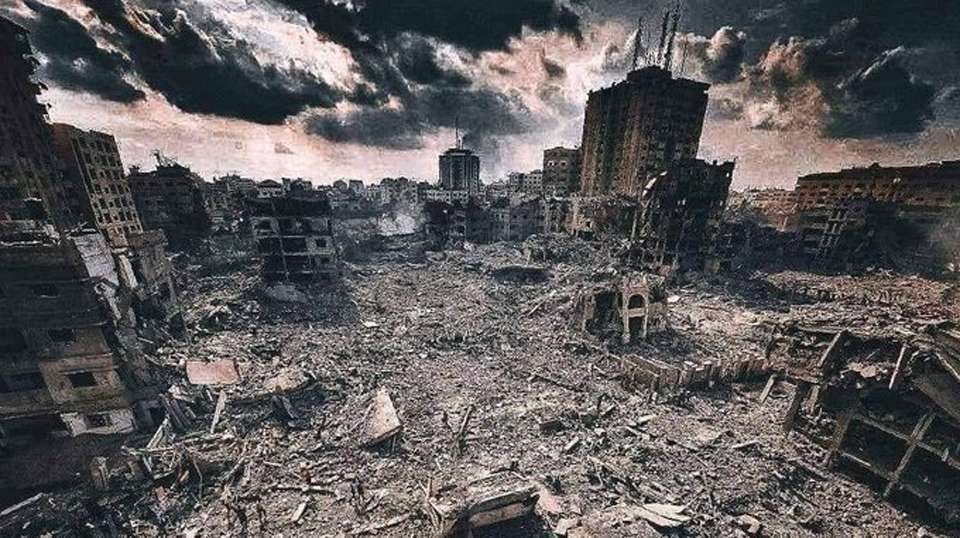The October 7 2023 Hamas attacks and Israel’s offensive in Gaza have caused significant turmoil in the Middle East, with implications for the Euro-Atlantic region and transatlantic relations. The ongoing relevance of terrorism and counter-terrorism will likely impact transatlantic relations as the US and Europe focus on deterring great-power conflict in Europe and the Indo-Pacific.
The attack by Hamas and Palestinian Islamic Jihad was extraordinary in terms of scale, with 1,200 Israelis killed and 240 taken hostage. It combined elements of terrorism with irregular warfare and an ongoing information campaign. The massive failure of warning and intelligence on the Israeli side will be researched and debated for years to come. The 7 October experience illustrates the dynamic relationship between technology and the human factor, between offense and defense in war.
Transatlantic leaders face a potential new wave of terrorism due to the events in Gaza and their aftermath. The 11 September attacks in Europe have heightened public perception of the threat, and there is a strong indication that the Gaza experience could lead to new attacks in Europe and North America. As transatlantic partners face the demands of a conventional war in Europe’s East, they must focus on terrorism on their own territory or aimed at their nationals and institutions abroad. Force protection for deployed contingents is likely to become more demanding in these regions.
The Gaza crisis, which could escalate into a protracted urban battle or spread to Lebanon, could lead to a new iteration of foreign fighters, posing operational and policy challenges in Europe. Maritime security is a growing concern, with Houthi militias disrupting navigation in the Red Sea and access to the Suez Canal. Large-scale conflicts involving Hezbollah in Lebanon could threaten shipping, offshore energy platforms, and undersea cables. The prospect of imposing symbolic costs on Israel’s allies may make non-state groups reluctible to use small vessels for interdiction. NATO allies have resources to address these threats, but near-term economic and environmental risks must be addressed.
An Iran strategy on the brink is also posing long-term opportunity costs. The region’s potential as a center for future energy production, trade, and digital infrastructure linking Europe, Asia, and Africa depends critically on regional stability and manageable geopolitical risks. Initiatives such as IMEC and the EU’s Global Gateway are unlikely to be viable unless some minimal security conditions are met.
The Gaza attack and its aftermath are expected to fuel a debate about the potential for terrorism carried out under an Iranian nuclear umbrella. The prospect of unconstrained Iranian nuclear development alongside a resurgence of terrorism and irregular warfare from the Eastern Mediterranean and its hinterlands could shorten the odds of an Israeli and/or US strike against Iran’s nuclear facilities. The rise of regional developments is expected to elevate Iran policy on the transatlantic security agenda.
The myth of US disengagement from the Middle East has become fashionable, driven by political disillusionment, a changing energy economy, and pressing requirements elsewhere, particularly in the Indo-Pacific. However, there is little evidence of disengagement per se. The US remains a pivotal diplomatic actor, with the deployment of two carrier battlegroups to the region after the Gaza attack. These deployments are a visible show of support for Israel in the Gaza conflict and are even more relevant as a deterrent to Iran and its proxies in Lebanon and elsewhere.
The US commitment to the Mediterranean dimension of European and Middle Eastern security is uncertain due to the chaotic state of US politics and election year uncertainties. Even the Biden Administration has had difficulty funding defense support to Ukraine and Israel, and another Trump Administration would likely be highly disruptive to alliance relationships on a global basis.
The EU’s southern flank is a crucial area for security, with the Mediterranean and Levant being areas where Europe can and should take more action. EU member states already have the capacity for crisis management and power projection in these regions, which Europe can reach and act on. However, if the EU aspires to greater strategic autonomy and a larger geopolitical role, the most relevant and practical tests may be in the south.
Hybrid threats from the south and the return of counterterrorism as a strategic priority may reopen the debate over what counts in the burden-sharing equation. Intelligence, domestic security establishments, and other elements not normally present in conventional measures of defense spending could feature in a less orthodox approach to burden-sharing. NATO’s revised Strategic Concept and regional defence plans launched at the Vilnius summit offered an opening for more explicit thinking about Alliance strategy looking south.
The EU’s Strategic Compass identified issues and tasks of special relevance to the Mediterranean and the Middle East. Policymakers and planners will struggle to reconcile a more specific southern strategy with the pressing demands of deterrence and defense against a major nuclear-armed adversary in the East.
Counterterrorism is a priority, as it may be politically existential, especially during critical elections on both sides of the Atlantic. The role of state sponsors in the terrorism challenge is linked to wider geopolitical tensions, and leaders and publics will insist on increased attention to warning and response in this sphere.
Maritime security will be a critical area for action, as the global economy does not need new sources of risk. Instead, political commitment and a multilateral approach are needed. Security actors in the West and the ‘global south’ should agree and act together. The ongoing crisis and looming security and humanitarian needs highlight the significance of closer NATO-EU cooperation in the Mediterranean. The mix of hard and soft security challenges and the relatively balanced capabilities of European and US capabilities present an important opportunity for cooperation.


